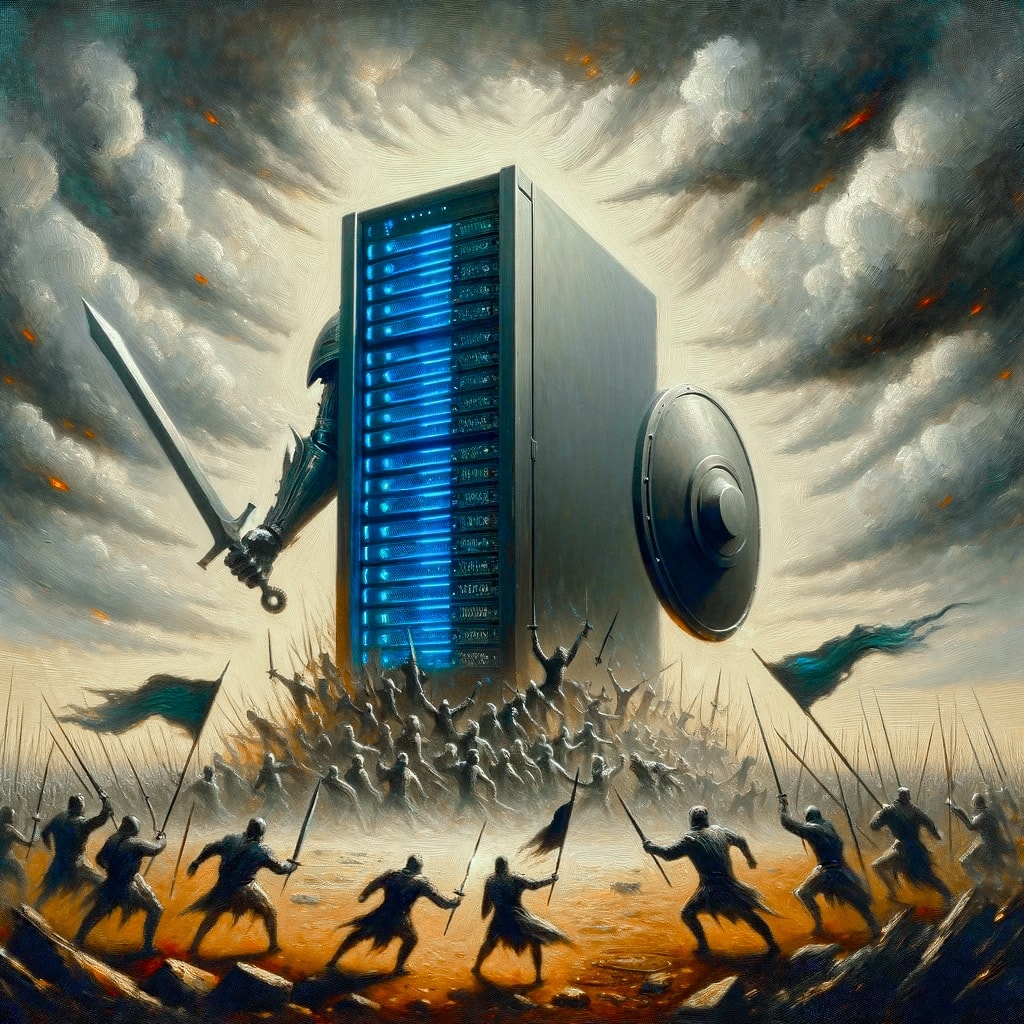Welcome, and thank you for being part of the MyZucoins community! Let’s get into an interesting piece of crypto, finance, or tech news to stay ahead.

BlackRock CEO Larry Fink Says Bitcoin Is “Bigger Than Any Government”
BlackRock CEO Larry Fink, once a Bitcoin skeptic, now champions it as a defense against government manipulation and economic instability.
BlackRock is the world’s largest asset manager and plays a pivotal role in global finance.
Founded in 1988, it has grown into a financial behemoth, managing about $9 trillion in assets as of 2023.
This staggering figure represents a diverse range of investments, including stocks, bonds, and real estate across the globe.
BlackRock’s influence extends beyond sheer asset size; it’s a major player in corporate governance and financial markets.
In a Fox Business interview, Fink described Bitcoin as a safeguard for people in countries with authoritarian governments or unstable economies.
He suggested Bitcoin as a reliable asset for those fearing government overreach or currency devaluation.
Fink’s stance marks a dramatic shift from 2017, when he aligned with JP Morgan CEO Jamie Dimon in criticizing Bitcoin, even labeling it an “index of money laundering.”
Despite acknowledging Bitcoin’s past use in illicit activities, Fink’s perspective evolved during the pandemic, seeing Bitcoin’s potential as a valuable asset.
He expressed his belief in Bitcoin’s merit and opportunities, debating its efficacy as a long-term store of value.
Fink highlighted the growing legitimacy of Bitcoin, especially following the U.S. Securities and Exchange Commission’s (SEC) recent approval of spot Bitcoin ETFs, including those from BlackRock, which signals a major advancement and acceptance for cryptocurrency.
Fink also sees potential in an Ethereum ETF, considering it a move towards broader asset tokenization.
However, he remained non-committal on future crypto-based ETFs like Ethereum or XRP, opting not to comment on specific plans. Read more here.
The Great Unbanking, a dangerous censorship game. Crypto’s potential.
What Are The Differences Of Self-Managed Crypto Wallets Like Zucoin’s Vs Institutional Services?
BlackRock CEO Larry Fink’s evolving stance on Bitcoin, as he now champions it as a defense against government manipulation and economic instability, underscores a growing recognition of cryptocurrencies.
This shift is not just about Bitcoin, but also reflects the broader potential of digital assets like Zucoin in promoting autonomy.
However, with Zucoin, we go one step further.
Zucoin is making self-managed (also known as self-custodial) wallets so easy to use, that most people can do it themselves.
Centralization becomes common when DIY alternatives are too hard.
So what would be the need for institutions if Zucoin’s wallet app makes DIY digital asset management easier?
In many cases, institutions provide a more standardized, regulated and audited platform, that some major corporations, funds and governments prefer to work with.
Institutions typically also have more fallback safety, for example by offering insurance, but this comes with fees.
Fink’s perspective on Bitcoin, particularly as a safeguard in countries with authoritarian governments or unstable economies and inflated currencies, aligns closely with the foundational principles of Zucoin.
Zucoin’s total coin supply is capped and hard-coded at 100 million tokens, similar to Bitcoin’s 21 million coin tokens, suggesting a shared understanding of scarcity as one of the potential drivers of value.
However, we prefer to think of this as a secondary effect, as this alone encourages excessive and wild speculation.
The primary driver should be to apply the technology to useful applications.
It’s done by focusing on the areas where crypto can make existing processes far better.
To do this, we need to think about what fundamental problems do crypto technologies solve.
One area is decentralized trust, and it’s fundamental to any decent economy.
It allows for transactions, deals and contracts to happen, without constantly having to return to a central trusted middleman to settle the transaction.
Crypto opens up the ecosystem to anyone who wants to participate.
Think of it as an open-ended Visa or Mastercard, where anyone who wants to join and help out, can.
As Splitchain moves towards more decentralization and open-source, this is one of the outcomes to encourage.
The crypto industry makes itself a formidable player in this new era of asset freedom, offering a viable alternative to traditional systems and a potential shield against economic uncertainty and censorship.
With Zucoin’s transactional efficiency and cost-effectiveness, its focus is to improve upon the pioneering goals set out by Satoshi Nakamoto—Bitcoin’s anonymous creator.
For Zucoin, after many years of late night and early morning research, it resulted in a completely new approach, with a different architecture to blockchain.
That came in the form of Splitchain—the fast, lightweight, and easy network that underpins the Zucoin token.
Splitchain’s efficiency should help to make real-world utility easier to achieve, making its Zucoin token not just a store of value, like Bitcoin, but also a practical medium for all sorts of transactions on top.
If you liked this newsletter, please forward it to someone who might like it too.
You can also donate here or even buy some Zucoins. Every little bit helps us improve.
What did you think of this newsletter? Reply to send us feedback on what you liked or want to see featured more. There’s more coming, so stay tuned.
—
All the best,
—Rob
MyZucoins
Disclaimer: Of course, this is not advice, financial or otherwise. It’s also important to consider the risks and challenges associated with any potential benefits.